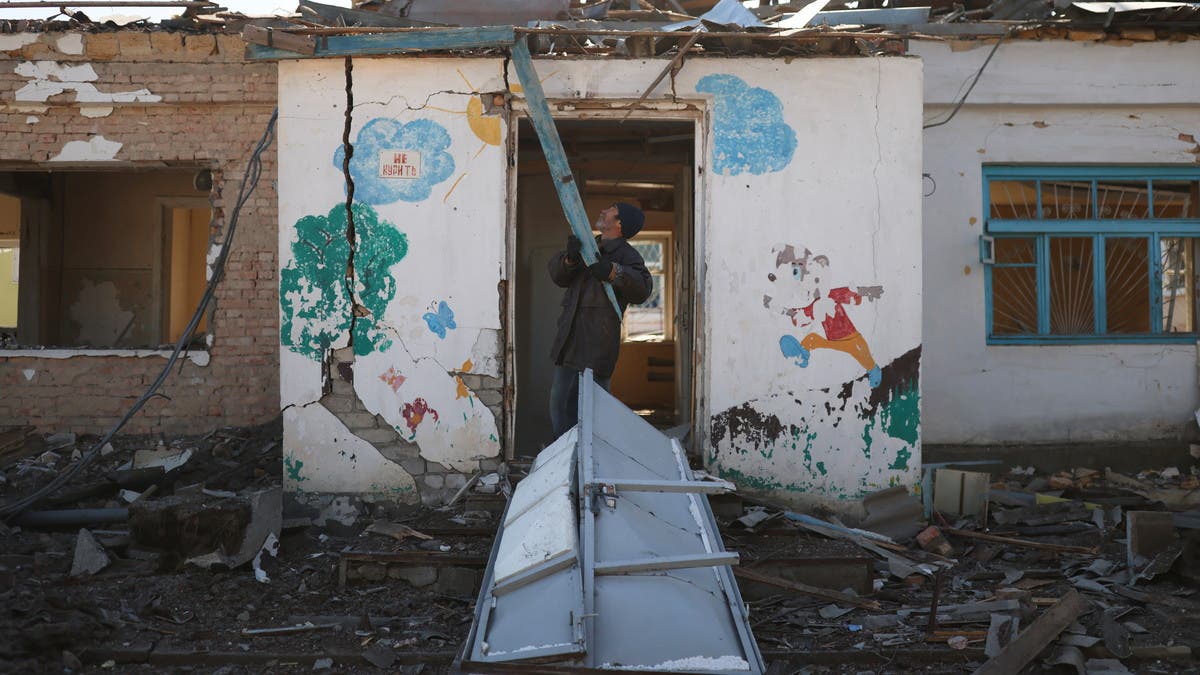The Russian invasion of Ukraine has resulted in at least 64 attacks on health facilities in Ukraine, averaging between two to three attacks per day as of March 22 (day 25 of the invasion), the World Health Organization revealed in a statement early Thursday in which it condemned these attacks in the “strongest possible terms.”
The Russian invasion has had a devastating impact on the country’s health system, destroying health infrastructure and disrupting chains of medical supplies.
For the latest headlines, follow our Google News channel online or via the app.
“Attacks on health care are a violation of international humanitarian law, but a disturbingly common tactic of war – they destroy critical infrastructure, but worse, they destroy hope,” said WHO Ukraine representative Dr. Jarno Habicht in a statement.
“They deprive already vulnerable people of care that is often the difference between life and death. Health care is not – and should never be – a target,” he added.
One month into the Ukraine war, almost four million people have fled to neighboring countries, meaning that one in four Ukrainians have been forcibly displaced, aggravating the condition of those suffering from noncommunicable diseases. According to the International Organization for Migration (IOM), one in three of the internally displaced suffers from a chronic health condition.
Chronic health conditions
Several hospitals have been repurposed to care for the wounded. This shift, while necessary, comes at the cost of primary health care and essential services.
Approximately half of the country’s pharmacies are thought to be closed, said WHO, adding that many health workers are displaced themselves or unable to work.
In addition, close to 1,000 health facilities are within a close vicinity of conflict lines or are in besieged areas. As a result, this has limited the facilities’ access to medicines, health professionals and facilities so treatments for patients with chronic health conditions have almost come to a complete halt.
Over 20 emergency medical teams have been deployed by the WHO to Ukraine, Poland and Moldova, to provide training and specialized medical care to supplement existing services in the countries.
COVID-19
Coronavirus vaccination and routine immunization has also been disrupted. Before the Russian invasion, at least 50,000 people were reportedly getting inoculated against the virus per day.
However, between February 24 and March 15, only 175,000 were vaccinated against COVID-19, posing yet another huge risk for Ukrainian civilians as the world still grapples with the pandemic two years on.
WHO in Ukraine
On the first day of the war, February 24, WHO activated its contingency plans which involved repurposing staff and projects and shifting its focus to emergency needs in order to support Ukraine’s health system and its healthcare staff.
“WHO works closely with Ukraine’s Ministry of Health and authorities to identify gaps and needs in the country’s health system – and swiftly respond,” the statement read.
“WHO has opened an operations hub in Rzeszow in Poland, developed a pipeline of trauma supplies to most Ukrainian cities, and sent more than 100 metric tons of medical equipment over the border, to health facilities across the country.”
Currently, around 36 metric tons of supplies are on their way to the Ukrainian city of Lviv, with an additional 108 metric tons in the pipeline, consisting of trauma supplies, pediatric drugs, medication for chronic diseases and blood transfusion supplies, WHO revealed.
“What we are delivering – and where – meets the very needs of people on the ground, where Ukrainian health workers are working around the clock in unimaginable circumstances. A team of trained health-care professionals can, with one WHO trauma kit that contains surgical equipment, consumables and antiseptics – save the lives of 150 wounded people. In other words, delivering 10 such kits, means 1500 lives saved,” Habicht said.
On March 18, as part of a United Nations convoy, WHO also reached the northeastern city of Sumy with critical medical supplies to treat 150 trauma patients and provide primary health care to around 15,000 patients, sufficient for three months.
Among other deliveries to health facilities over the past week are artificial lung ventilation machines, a hematology analyzer, chemical protection suits, cryogenic cylinders and liquid oxygen bulk tanks.
“I have seen with my own eyes the exceptional humanitarian response in neighboring countries, but this emergency is far from over. We expect more people – mainly women, children and older persons – with even greater health needs to be displaced in the coming weeks. They may face challenges in accessing the services and medicines that they need – and this can have life-threatening consequences,” the WHO’s Regional Director for Europe Dr. Hans Henri P. Kluge said.
Read more:
Russian siege of Mariupol is ‘genocide’: Ukraine chief prosecutor
Russian invasion poses ‘clear, growing threat’ to food security in Ukraine: FAO
‘Frightening conditions’: Aid staff face logistical hurdles, urge Ukraine ceasefire

 World3 years ago
World3 years ago
 World3 years ago
World3 years ago
 Business1 year ago
Business1 year ago
 Entertainment7 years ago
Entertainment7 years ago
 World7 years ago
World7 years ago
 Entertainment7 years ago
Entertainment7 years ago






